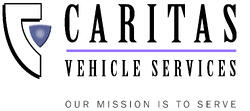
Attendees of a recent RCRI Annual Conference gather to hear the keynote address.
The Resource Center for Religious Institutes (RCRI) held their 2024 RCRI Annual Conference at the Rosen Centre Hotel in Orlando, Florida from Oct. 1 – Oct. 4. Caritas Vehicle Services has participated in the RCRI Conference for many years, and was honored to be invited to host a workshop at this year’s convening.
The conference is known for being a highly informative and collaborative event. Each year, representatives from RCRI member organizations are given the opportunity to network with peers, develop new partnerships, and learn about a variety of resources from service providers and RCRI partners like Caritas.
RCRI’s impact
The 2024 RCRI Annual Conference featured a theme titled “People of God Walking Together on a Synodal Path.” From the first day, the Rosen Centre Hotel was filled with an atmosphere of enthusiasm as RCRI members connected with each other over new ideas and shared challenges and successes.
In a video posted to RCRI’s website reflecting on the impact of the 2023 conference in St. Louis, Missouri, RCRI Executive Director Sr. Sharon Euart said “We have an annual conference sometime in the fall each year. It’s the highlight of our year.”
“We bring together leaders of institutes, perhaps their counsels or their teams, and our finance people come, but I think the beauty of our conference is the diversity,” she continued. “I mean diversity at so many levels; at levels of culture, at levels of competencies, and especially at levels of Religious vocation.”
Sr. Sharon also commented on the impact that the conference provides this diverse group of Religious Communities.
“What is beautiful to me is we don’t know what Conference they come from, nor does it matter to us,” she said. “Because they are institutes that have an interest in and a need for resources that we can provide for them.”
Besides networking, the 2024 conference program included 41 workshops which covered a wide range of topics such as finance, canon and civil law, transition planning for Religious institutes, and elder care.
On Oct. 2, the second day of the conference, Caritas Director Brad Forbush and Senior Fleet Manager Doug Reading delivered a workshop that explored solutions for the primary challenges Religious Communities now face in managing their transportation needs.

A Caritas Vehicle Services booth is set up at each annual RCRI conference.This year, Caritas Director Brad Forbush and Senior Fleet Manager Doug Reading also held a workshop that addressed the transportation challenges that Religious Communities now face.
The survey and “Big Picture”
The focus of the workshop revolved around the "Transportation Survey Project" that Caritas coordinated in the weeks leading up to the RCRI conference. Our survey was designed to examine the “Big Picture” in managing transportation for Religious communities in 2024.
The “Big Picture” has to do with how transportation cost is skyrocketing. In 1984, the average cost of a new car was $9,000. In 2024, the average cost of a new car is $47,000, which is a 260% increase over 30 years. Typically, vehicles are the third largest expense in operating a religious community after housing and healthcare, but they’re not always treated as “assets” that must be managed and are often seen merely as an unavoidable expense. Communities are also keeping cars longer, which means higher repair costs and lower fuel economy. Today, there is a heightened awareness among communities of Women Religious as many have said “We’ve got to do something about our cars!”
In an effort to help communities address the current challenges in managing transportation, Caritas set out to facilitate an exchange of ideas and solutions, starting with the nationwide survey, which led to the findings that we shared in the RCRI conference workshop.
Our survey was sent to 680 community members, spanning over 150 communities of all sizes. According to our survey results, 172 individuals completed it.
The survey, titled “Transportation Needs for Religious Communities,” asked pertinent questions about how communities manage their vehicles now. Examples of questions included:
- Does your Community have a written strategy or centralized plan for managing vehicles?
- What steps does your Community take to ensure driver safety?
- Does your Community conduct an annual Life-Cycle Cost Analysis for your vehicles?
- What do you see as the biggest challenge in managing your Community’s vehicles?
Finally, our survey results were organized into categories, and we identified the "Top 5 Challenges" that these communities experience in meeting their transportation needs.
The workshop
Brad and Doug facilitated the Caritas workshop on the second day of the conference, which was titled “Top 5 Challenges in Managing Transportation for Religious Communities.”
Guest panelists at our workshop included Sr. Jeanne Hagelskamp, treasurer for the Srs. of Providence, St. Mary of the Woods, IN.; Sr. Teri Jordan, treasurer for the IHM Sisters of Scantron, PA.; and Geof Fowler, senior executive with the national fleet management company, Network-Wheels.
Top 5 Challenges (with Best Practices and Solutions)
Challenge 1: Aging drivers

Category: Vehicle Management
The majority of survey responses in the Vehicle Management category relate to the challenge of managing the risks associated with aging drivers. Two issues that were identified most frequently from the survey were: how to bring someone to the awareness that they should no longer be driving, and how to find resolution with a driver who does not want to relinquish their keys when it’s determined they should no longer be driving.
Best Practices:
- Develop and implement a written driver safety policy that includes guidelines for driver evaluations, both cognitive and “behind-the-wheel” assessments. The policy should be reviewed, agreed to, and followed by all drivers in the community
- Implement Motor Vehicle Record (MVR) reviews at specific intervals
- Provide alternate forms of transportation that may include car-pooling, volunteer drivers, shuttle vans and service providers such as GoGoGrandparent, Uber and Lyft
Challenge 2: Rising vehicle cost and limited budget

Category: Vehicle Acquisition
The combined issues of today’s high vehicle cost and communities' limited financial resources was the second-most reported concern in our survey responses.
Questions that certain respondents raised asked how best to balance a community’s needs with their budget, while others said they had been given poor advice and told to use their cars until they “died,” leaving them with too many old, high-mileage vehicles that need to be replaced.
Others asked “How do we know if we’re receiving the best available purchase price when we’re negotiating deals on our own?”
Even more respondents indicated that they did not have enough money to purchase all the cars they need to replace the failing ones, and 78% said they purchase vehicles from retail car dealerships.
Best Practices:
- Buy factory direct to obtain wholesale fleet discounts
- Focus on vehicle Life-Cycle Cost, which is the total cost of ownership over time
- Develop a Vehicle Selector List
- Compare cash purchase versus finance options available to nonprofits
- Designate a Vehicle Coordinator within your Community to handle all vehicle-related processes
Challenge 3: Maintenance and measurement

Category: Vehicle Maintenance
The majority of survey respondents indicated they don’t have a reliable system for tracking vehicle maintenance that provides accurate, complete and current reports on all maintenance and repair costs associated with their vehicles. Some respondents asked how best to make sure all their drivers are both aware of and completing routine maintenance on their vehicles. Others said that their drivers were not reporting maintenance issues on their vehicles until they became too late to fix.
Another concern was “How does a driver know when a shop may be recommending unnecessary repairs?”
70% of survey respondents said they don’t have an automated system to track and analyze maintenance and repair data and that they still rely on paper receipts.
Best Practices:
- Develop and implement an automated vehicle database and keep records
- Develop and implement maintenance reporting processes
- Assign maintenance tracking to a Vehicle Coordinator
- Establish vehicle maintenance schedules
- Implement authorization limits and approval processes
Challenge 4: Timing and process of vehicle replacement

Category: Vehicle Replacement
Survey respondents indicated they want to know how to determine the best time to replace a vehicle and how to get the highest possible return on their used vehicles. Many said it takes too long to sell them on their own. 60% of respondents said they trade their cars into dealerships.
Best Practices:
- Develop vehicle replacement guidelines
- Develop a replacement schedule for the annual budget
- Assign the process of replacing vehicles to a Vehicle Coordinator
- Research market value of your vehicles
- Keep your used vehicle sale transactions separate from your purchase transactions
Challenge 5: Life-Cycle Cost awareness

Category: Life-Cycle Cost Analysis
One thing was made clear by our survey and the RCRI workshop: life-cycle cost analysis is not on the radar of many communities. One respondent said they have engaged in the practice of calculating the life-cycle cost of each vehicle in their fleet, but only once, and not for many years. Others indicated they have little knowledge of the practice, but know that it does help somehow. 80% said they either don’t do life-cycle cost analysis or don’t know what it is.
Life-cycle cost is the real cost of operating a vehicle over time. A vehicle’s purchase price is just the beginning. The practice essentially brings all elements of vehicle ownership together and should be the determining factor in deciding when to replace a vehicle and in deciding which vehicles to replace it with. Life-cycle cost is measured in cents per mile, and shaving just one cent per mile makes a significant difference in cost over time.
Best Practices:
- Make life-cycle cost management the overarching goal of your vehicle management strategy
- Start by using life-cycle cost in vehicle selection
- Assign life-cycle cost analysis to a Vehicle Coordinator
- Develop a process for tracking life-cycle cost on newly acquired vehicles
Learn more about Life-Cycle Cost Analysis
Moving forwardAfter the “Top 5 Challenges” discussion, attendees were given the chance to engage with others in a brainstorming activity during the Caritas workshop. The activity, called “Ideas into Action,” saw participants working in pairs and using a worksheet to come up with “3 Great Ideas” along with three actionable steps towards achieving each goal, or idea.
Brad said the entire workshop experience was very positive for both panelists and attendees. He specifically commented on the great turnout and the encouraging amount of discussion and problem-solving.
“Participants in the workshop were really engaged, and there was a good exchange of information and ideas,” Brad said, adding that the workshop quickly became less about transportation challenges and more about solutions, by highlighting available resources and constructive action steps that communities can take right away.
Workshop attendees were encouraged to present their “great ideas” to other community members, and to collaborate on how best to implement what they learned during the session.
We at Caritas Vehicle Services are very grateful to RCRI for the opportunity to deliver this workshop and to serve all those who attended.




